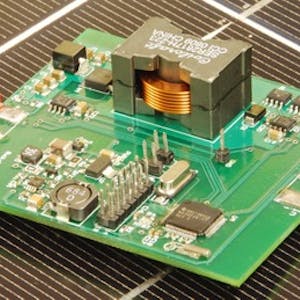This course, Converter Control, provides in-depth training on designing feedback systems for controlling switching converters. It is also available for academic credit as part of CU Boulder’s Master of Science in Electrical Engineering program. Participants will learn to extend equivalent circuit models for small-signal ac variations, solve models to find transfer functions, and analyze and design feedback loops to meet specific requirements. The course assumes prior completion of Introduction to Power Electronics and Converter Circuits.
By completing this course, participants will acquire the skills to design and analyze the feedback systems of switching regulators, making them adept at controlling switching converters.
Certificate Available ✔
Get Started / More Info
This course comprises modules covering AC equivalent circuit modeling, converter transfer functions, and controller design, culminating in the ability to design and analyze feedback systems for switching regulators.
Module 1 provides a comprehensive introduction to AC equivalent circuit modeling, covering topics such as averaging, perturbation and linearization, state-space averaging, and modeling the pulse-width modulator. It also includes a homework assignment to reinforce learning.
Module 2 delves into converter transfer functions, focusing on design-oriented analysis, Bode diagrams, pole, resonance, and analytical factoring of higher-order polynomials. Participants will engage in a homework assignment to apply their knowledge.
Module 3 further explores converter transfer functions by analyzing the graphical construction of impedances and transfer functions for basic converters. A homework assignment is included to solidify understanding.
Module 4 concentrates on controller design, covering closed-loop transfer functions, stability, regulator design, and op-amp compensator design. Participants will engage in two comprehensive homework assignments focusing on feedback and closed-loop simulation.
Algorithms for Battery Management Systems equips you with the skills to model lithium-ion battery cells and implement sophisticated algorithms for estimation and...
Power Electronics is a specialization covering design-oriented analysis, modeling, and simulation techniques, leading to practical engineering of high-performance...
Input Filter Design offers an in-depth exploration of electromagnetic interference (EMI) and electromagnetic compatibility (EMC) in power electronics. Gain expertise...
Primary and Secondary Batteries: This course explores the fundamental principles, design, and applications of batteries, with a focus on maximizing energy and power...